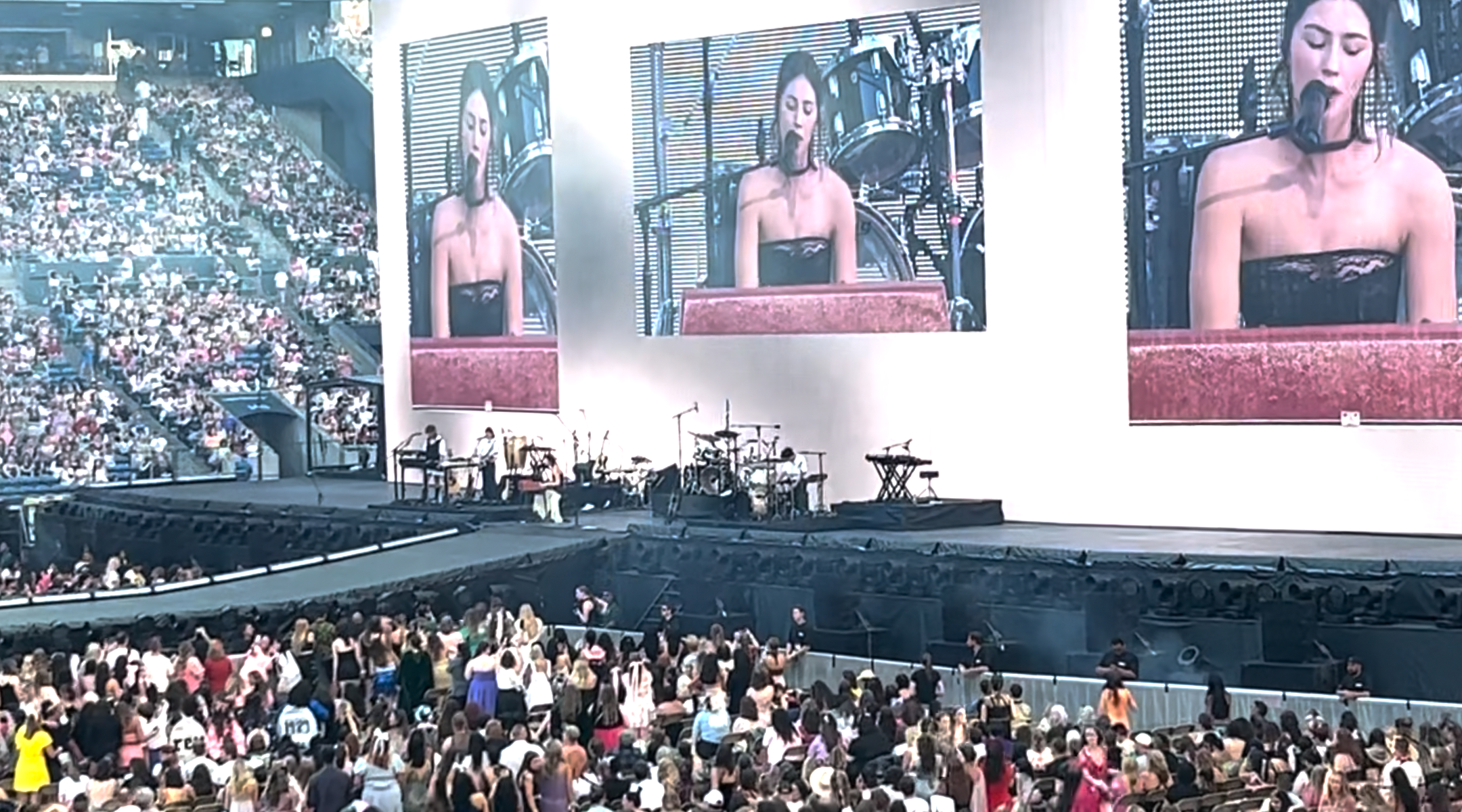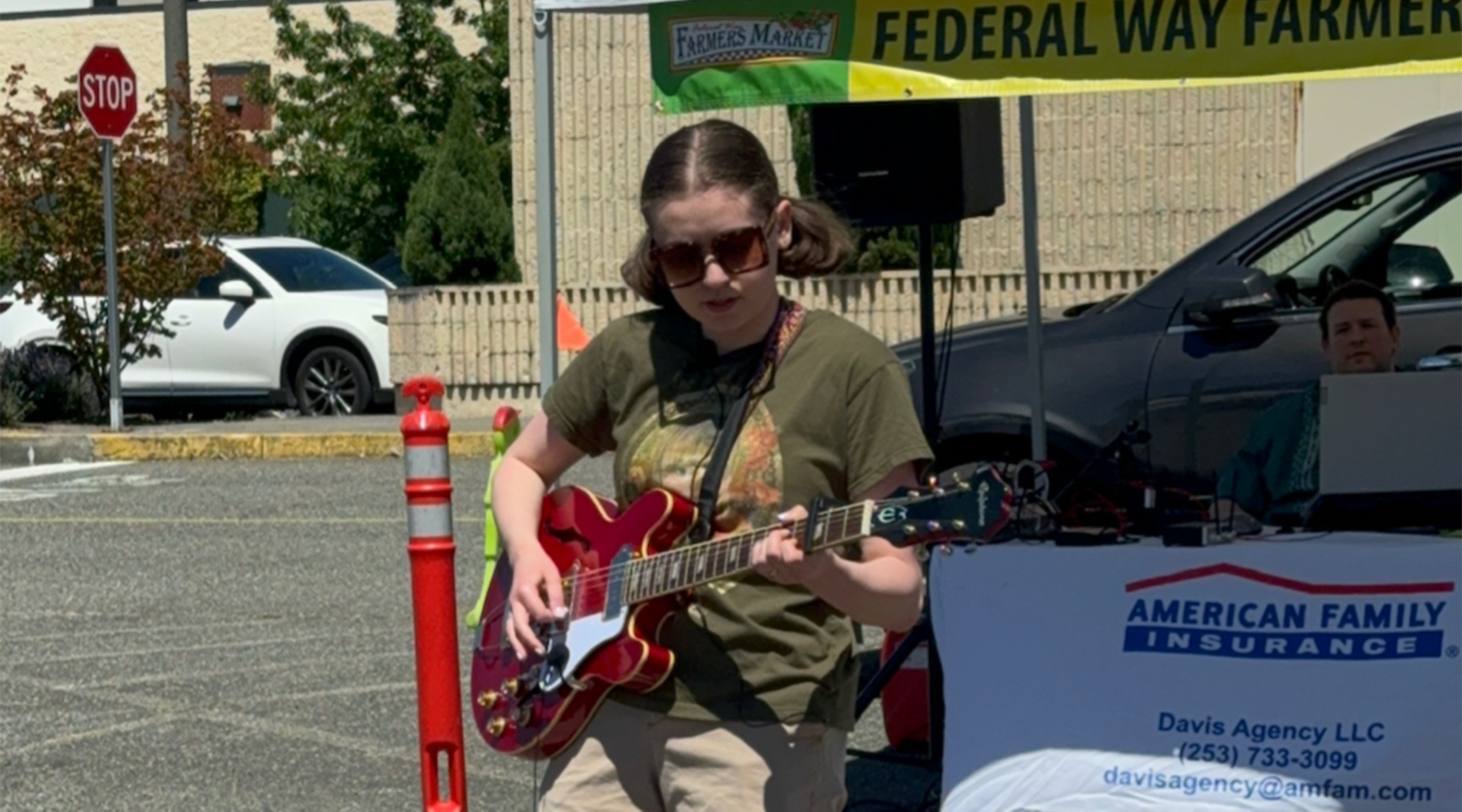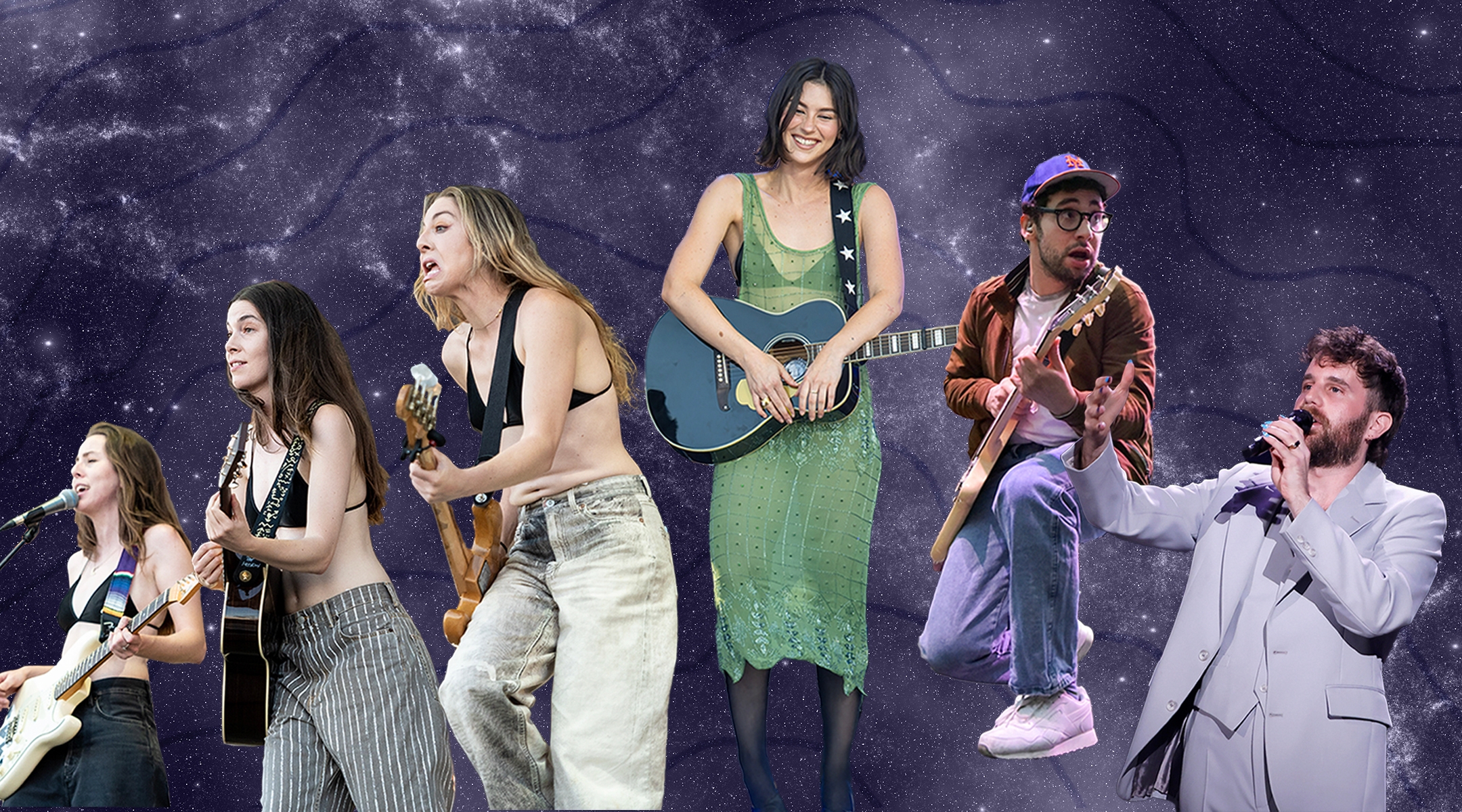This article was produced as part of JTA’s Teen Journalism Fellowship, a program that works with Jewish teens around the world to report on issues that affect their lives.
In the summer of 2023, I joined over 70,000 other Swifties crammed into Lumen Field for The Eras Tour Night 2 in Seattle, Washington. For months, we had anticipated Taylor Swift’s record-breaking, three-and-a-half-hour concert, which famously broke Ticketmaster and became one of the biggest pop-culture events of 2023. Although I was elated to see my longtime idol hit the stage, Taylor wasn’t the only reason I was there.
In Seattle, the openers for The Eras Tour were not only phenomenal musicians but also Jewish. At the time, seeing Gracie Abrams and Haim perform and knowing we shared an identity was certainly meaningful, but the magnitude of what that would mean to me later as an aspiring songwriter was not realized until months later.
Following the attacks by Hamas in Israel on Oct. 7 and the subsequent war in Gaza, being a Jewish teenager felt political without even bringing up politics. During classroom discussions in my school with a class size of 55, where I am one of two Jewish students in my grade, I pretended not to notice stares during current events updates that touched on the war in Gaza.
Regardless of my opinions on the war, I could feel assumptions in every glance and comment from my peers despite my having no association with Israel whatsoever. I have never even been to Israel and neither have my parents.
I realized that if I couldn’t control others’ assumptions, then I could control my relationship with my Jewish identity. As a songwriter, I turned to writing music and listening, specifically to Jewish artists.

Gracie Abrams performing as the opening act during Taylor Swift’s Eras Tour at Lumen Field, Seattle WA, Jul. 23, 2023. (Alinea Kirshenbaum)
My love for Gracie Abrams and Haim — three Jewish sisters from Los Angeles — has remained. Abrams’ “The Secret of Us” is an emotionally riveting album that reads as poetry. Haim’s “Women in Music Part III” is the perfect summer album with a cover that features all three sisters in Canter’s Deli in Los Angeles. The self-titled album “Bleachers” (led by Jack Antonoff) came out in March and was immediately on repeat. Ben Platt’s Americana album “Honeymind” was as sweet as the title suggests and was 10 times better when he performed it live at Benaroya Hall. I even listened to the Jewish artists of my dad’s childhood, primarily Simon and Garfunkel.
These artists’ songs include bits and pieces that hint at their Jewish identities. The song “Jesus Is Dead” by Bleachers features a bold title that certainly could ruffle some feathers. “Voices of Old People” by Simon and Garfunkel — which introduces their song “Old Friends” — features conversations between older Jewish friends recorded by Art Garfunkel. Haim’s song “Summer Girl” references a popular Jewish summer camp song, where “walk beside me and be my friend, and together we will walk in the path of Hashem” becomes “Walk beside me, not behind me/ Feel my unconditional love.”
As a Swiftie who is used to deciphering Taylor Swift lyrics, I live for diving into references made by Jewish artists that hint at their identity. This heightened interest and connection to Jewish lyricism inspired me to write a song about my Jewish experience.
For the first time, I was able to write a song that’s satirical yet discusses a serious topic: the way Jewish teenage girls are portrayed in media. I titled it “Jewish American Princess” and poked fun at stereotypes with lines like:
I’m your Jewish American Princess
Certified damsel in distress
I don’t care about your rules
Because my daddy’s got a pool

Alinea Kirshenbaum plays guitar at Federal Way’s Got Talent, Federal Way, Washington, Jul. 6, 2024. (Courtesy Alinea Kirshenbaum)
These artists are incredibly impactful to me as a Jewish teenager aspiring to become a performing artist someday. I had previously thought that since Jews are a minority, singing about Jewish topics wouldn’t be as popular as songs with secular themes. These Jewish musicians are the exact role models I need when striving to achieve my career goals while staying proud of my identity, a balance that often seems daunting.
That being said, hearing more secular songs from Jewish artists is just as, if not more, impactful. Even when these artists don’t sing about Jewish topics, their music serves as a “bridge over troubled water,” so to speak. The very fact that Jewish artists proudly romanticize and muse about topics outside of their identity while simultaneously existing within it humanizes the Jewish experience outside of the political landscape. With the American election season underway, the need for this perspective in music increases.
Since this realization, I now embrace my identity on my terms more than ever before. I proudly wear the Stand Up To Jewish Hate blue square on my tote bag wherever I go. My family recently hung a mezuzah outside our door, a tradition we had not participated in growing up. This outward symbol of Jewish identity felt important for my interfaith family because it serves as a reminder that being Jewish means whatever you want it to mean. I cherish every family holiday gathering and realize it’s a privilege to partake in tradition with the people I love and care about.
Music is healing regardless, but Jewish musicians remind me that music from a shared identity can act as a mirror into my life, which is something I should take pride in.
JTA has documented Jewish history in real-time for over a century. Keep our journalism strong by joining us in supporting independent, award-winning reporting.






